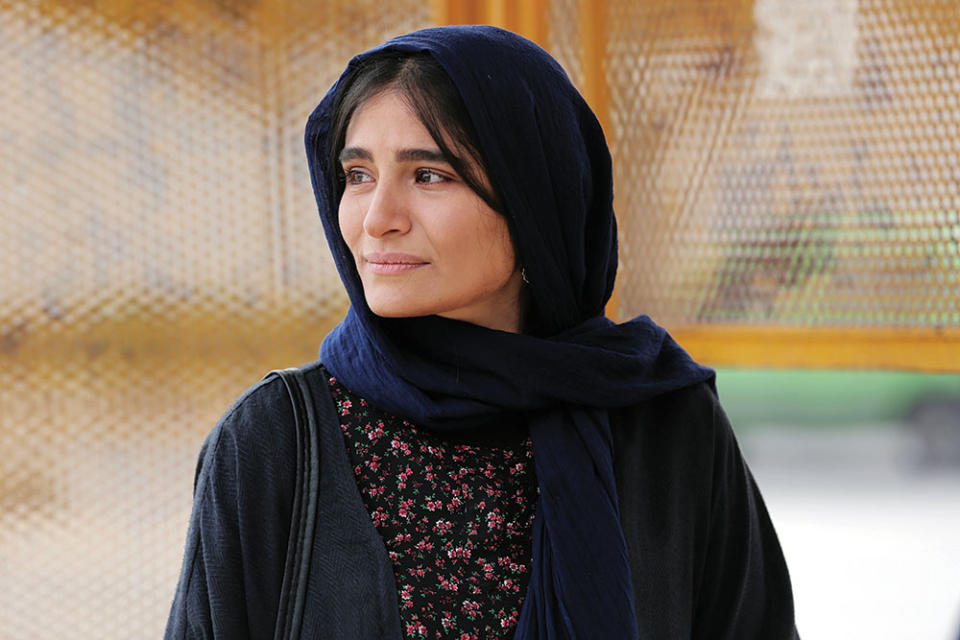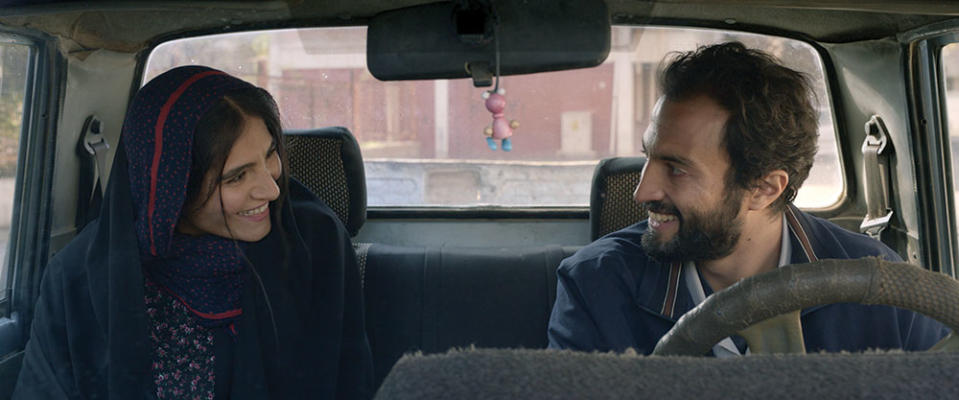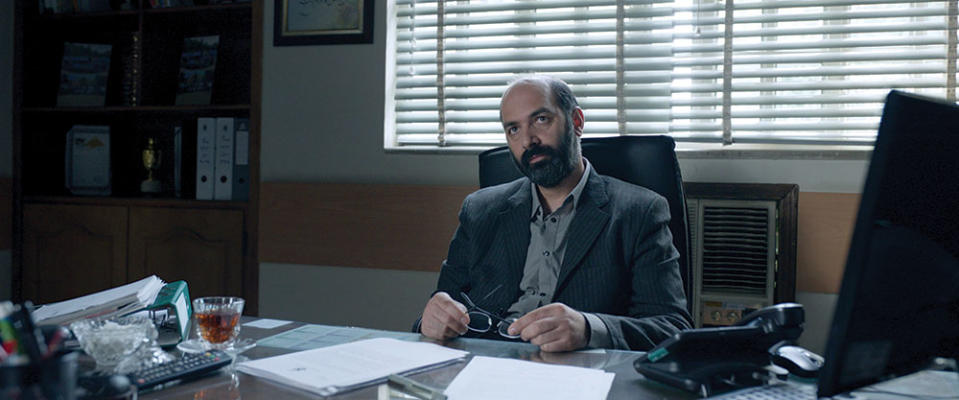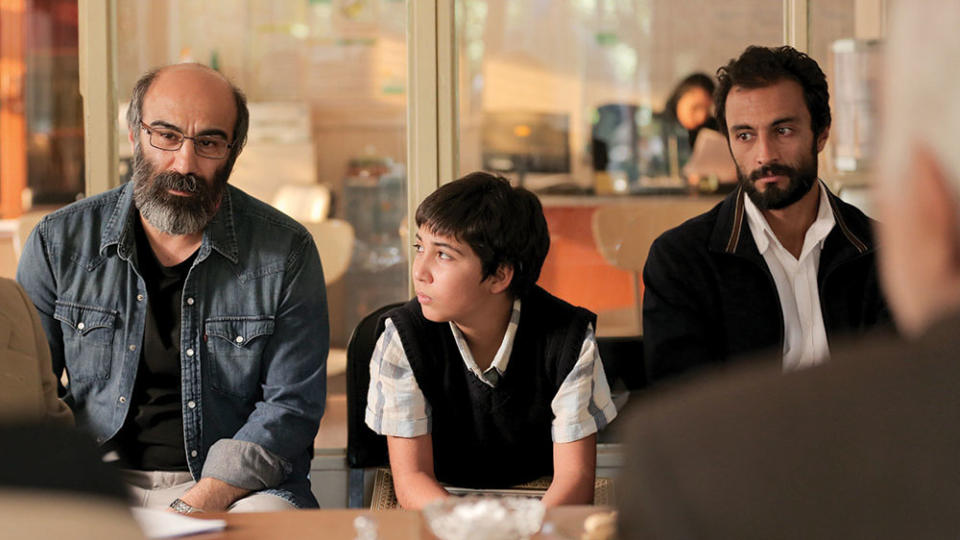Making of ‘A Hero’: Writer-Director Asghar Farhadi’s Latest Drama Has Been in His Mind for Decades
- Oops!Something went wrong.Please try again later.
- Oops!Something went wrong.Please try again later.
- Oops!Something went wrong.Please try again later.

According to Amir Jadidi, the star of Asghar Farhadi’s drama A Hero, there’s an expression in Farsi that roughly translates as, “The wealthier, the needier.”
This was one of the actor’s initial thoughts when the director first pitched the film’s title character, Rahim, a man seemingly forever dangling over the precipice of disaster, yet with a serene demeanor and expression that masks the chaos he’s straddling.
More from The Hollywood Reporter
'Beauty and the Beast' and Its Unprecedented Oscar Run in 1992: "It Was a Giant Moment for Everyone"
Kino Lorber Takes Italian Sci-Fi Thriller 'Mondocane' for North America (Exclusive)
Olivia Rodrigo, Dua Lipa and Lil Nas X Among Top Winners at 2022 iHeartRadio Music Awards
“Sometimes people who don’t have anything still have this impression of satisfaction or acceptance in their gaze, because that’s their attitude to life,” says Jadidi, adding that he immediately identified Rahim as a figure commonplace in Iran. “There’s this tendency in our culture of accepting life as it is, despite its difficulty and bitterness.”
The seeds for A Hero had begun germinating in Farhadi’s head many years earlier, long before he rose to international prominence with his breakout feature, 2009’s About Elly, and later with his two Academy Award winners for best foreign-language film, 2011’s A Separation and The Salesman, from 2016 (the award was renamed best international film in 2020). While at university in Tehran in the early ’90s, he had seen a performance of the Bertolt Brecht play Life of Galileo, in which he was particularly affected by “two lines” concerning the definition of a hero.
“After I saw that play, my mind was going around that idea,” says the 49-year-old filmmaker, who from then on would gather stories in the press about ordinary individuals who had briefly made it into the news because of their acts of altruism. “But the aspect of the story that most interested me was of a character who ascends and descends in a very short space of time.”
Farhadi says he had always planned to return to Iran after his Spain-set 2018 feature, Everybody Knows — starring Javier Bardem and Penélope Cruz — continuing a cycle that, since A Separation, has seen him alternate between his home country and Europe with each project.

Amirhossein Shojaei/Amazon Studios
According to producer Alexandre Mallet-Guy, who has collaborated with the director since About Elly (which he distributed in France, later coming on board as producer for Farhadi’s 2013 French drama The Past), there’s good reason for this moving back and forth. Simply put, each time Farhadi makes a film in Iran, he is simultaneously accused by one section of society of presenting a negative image of the country and, by another, of being too pro-regime. “It’s very difficult for him,” says Mallet-Guy. “Usually after he makes a film in Iran, he’ll try to make a film outside the country, just so the situation can calm down.”
So after filming Everybody Knows in Spain and presenting the film in competition in Cannes in 2018, Farhadi headed back to his home in Tehran, gathered up his thoughts and old news clippings and began writing notes, which he says by then was like dealing with a “pebble in your shoe that you’re trying to get rid of.” After several months, working mostly in the early morning until noon (he says he’s “not an afternoon writer”) and spending most of this time pacing up and down a specific path in his home (something he says “connects me to my subconscious”), the characters and their backstories began taking shape, together with elements of the storyline that he would pin to his wall.
Central to A Hero is Rahim, a man who, during his two-day release from debtors’ prison, becomes entangled in an increasingly convoluted plan to pay back his creditor, one involving a lost bag of a gold coins and an apparent act of honesty and kindness aimed at restoring his honor (and, ultimately, his finances). At first Rahim’s actions put him on a pedestal, but this soon begins to topple as questions are asked about his claims and his detractors post videos on Facebook to discredit him and hinder any chance of rehabilitation. Farhadi set the story in Shiraz, a historic city in Iran’s southwest, partially chosen to distance himself from the “tumult” of Tehran.

Amirhossein Shojaei/Amazon Studios
On receiving the script, Mallet-Guy saw a crucial difference from Farhadi’s previous Iranian drama, The Salesman, which the producer thought was perhaps too focused on issues that were “very local.” Mallet-Guy was confident that A Hero, with its “universal and timeless” themes — which touch on cancel culture, social media and the matter of reputation — would resonate with Western audiences.
When it came to casting, Farhadi originally planned to use only nonprofessional actors, all part of his desire to maintain as much of an “atmosphere of documentary and realism” in the film as possible. He managed this with the vast majority of the onscreen talent for A Hero, but when it came to Rahim, he realized it just wasn’t possible. He needed someone with the experience to carry such a role with a delicately nuanced performance.
“He’s a simple character, but is in a very complicated situation,” Farhadi says. “He had a very thin, narrow line to walk, and if it wasn’t done correctly, it could make the character come across like an idiot and someone that people don’t like.”
Although he had seen Jadidi’s screen performances, Farhadi hadn’t worked with the actor before. He had been quietly making a name for himself in Iranian cinema since his first feature, the 2013 crime thriller Africa, but it was his turn as a bitter husband who takes revenge on his soon-to-be-former wife in 2018’s Cold Sweat — which won him the award for best actor in a leading role at Iran’s Fajr Film Awards — that caught the director’s eye.

Amirhossein Shojaei/Amazon Studios
But it wasn’t an entirely straightforward casting decision. Jadidi had just bulked up for a James Bond-like film role, adding to an already athletic physique (in addition to acting, he’s a semiprofessional tennis player). A Hero‘s Rahim, an almost forlorn, pathetic-looking character, is anything but a muscular action hero.
“After we had the interview, [Farhadi] said, ‘OK, I’m choosing you. But you have none of the features I’m looking for — we have to change your body, we have to change your way of walking, you have to be comfortable to transform … and you especially have to lose weight,’ ” recalls Jadidi. For the actor, this posed a problem. With little or no fat on his athletic frame, slimming down wasn’t going to be easy, requiring a “very complicated” combination of dieting and exercise beyond his usual fitness regime in order to shed muscle mass. But he committed to doing this, and when he next went to see Farhadi, about a month later, he had lost about 11 pounds.
“And [Farhadi] told me, ‘That’s good, but you have to go on, keep struggling and keep losing more weight,’ ” says Jadidi.
It was around this time in early 2020 that COVID-19 made a dramatic stage entrance. The growing crisis — of which Iran was one of the initial major epicenters — saw the planned start of the shoot postponed by several months.

Amirhossein Shojaei/Amazon Studios
Jadidi says he wasn’t initially aware of this delay, which would have given him a lot more time to slim down. So he kept going, losing around 22 pounds in two months, a weight level that he then had to maintain until the production could get going.
The pandemic actually gave Farhadi considerably more time than he would usually have had at his disposal in preproduction, time he used to painstakingly workshop the roles with his actors. Key to this was Rahim. Many months were spent rehearsing with Jadidi to create a likeable character whose passivity evokes sympathy despite the questionable decisions he makes (and those that are made for him).
Together, the two devised Rahim’s hand movements and gait, plus a way in which he would lean forward, almost like a stoop, with Farhadi suggesting that Jadidi “imagine that one of your ears doesn’t work very well.” The most important aspect of this development was his haunting almost-smile, one that the director says makes “tragic moments even more tragic.”
It was during these extended rehearsal sessions — 10 months instead of the three or four that Farhadi usually has — that the team was joined by Ali Ghazi, A Hero‘s cinematographer. Ghazi — who had previously worked with the director on About Elly as assistant director of photography — had asked to be present for rehearsals in order to witness the characters being developed.
“What is really precious for me is that when you start observing the anatomy of a character — the way they act, their movements, the speed in which they sit down or get up, for example — you start understanding the identity of the character and can really tune the pulse of the camera with the pulse of the character,” he says.

Amirhossein Shojaei/Amazon Studios
Ghazi’s cameras finally started rolling in late August 2020. By this point, while the initial chaos at the start of the pandemic may have subsided, COVID-19 was a major concern thanks to a new wave of infections, with a vaccine still many months away. The production had to employ a strict set of protocols, with a doctor present on set, the number of crew drastically reduced to only those absolutely necessary (especially for interior scenes), and an increased number of monitors that ensured there were never more than two people huddled around screens at once.
The film’s 15-week shoot may seem inordinately long for a relatively lo-fi drama like A Hero, but, according to the filmmakers, that’s simply how Farhadi works. Guy-Mallet points to the fact that the director spends a generous amount of time focusing on the acting with his cast, and that he likes to “do 15 takes” of each shot.
Ghazi notes the incredible level of thought that Farhadi puts into the smallest of details, such as the contents of a character’s front shirt pocket, even if it’s barely noticeable onscreen. “Details really matter for him and are worth spending time on,” Ghazi says, adding that it’s this trait that makes Farhadi “very original and different” compared with other directors the cinematographer has worked with.

Amirhossein Shojaei/Amazon Studios
A Hero wrapped in mid-December 2020, with postproduction shifting to France (where Farhadi says a lot of energy was spent digitally removing the face masks worn during production, as part of the COVID-19 precautions, by extras in the background of shots). Guy-Mallet admits that he wasn’t sure whether the movie would be ready for the 2021 Cannes Film Festival; beginning with The Past, Farhadi has premiered all his films in competition at the festival. But when the event was postponed until July because of the pandemic, it gave the filmmaker enough time to finish the editing process.
For Jadidi, his first experience working with one of the most celebrated auteurs in global cinema went beyond what he was expecting. “I didn’t just gain a lot artistically,” says the actor. “I learned a lot on a human level. What matters most for me is humanity, and I really was taught human lessons in terms of morality and in terms of attitude.”

Amirhossein Shojaei/Amazon Studios

Amirhossein Shojaei/Amazon Studios
This story first appeared in a January stand-alone issue of The Hollywood Reporter magazine. To receive the magazine, click here to subscribe.
Best of The Hollywood Reporter

